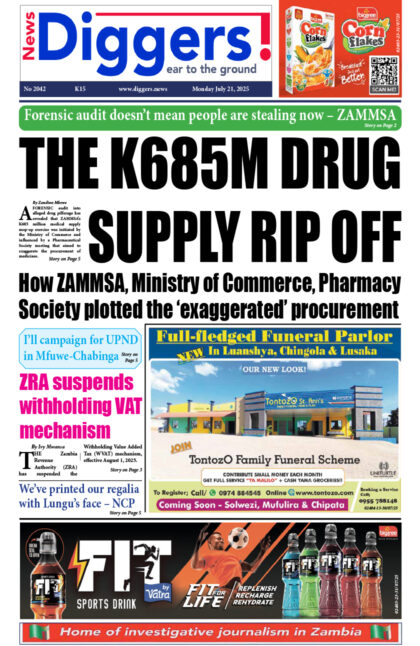Prime TV managing director Gerald Shawa says the decision by the Independent Broadcasting Authority (IBA) to suspend its operating licence for a month is too stiff.
And Amnesty International Regional Director for Southern Africa Deprose Muchena says the suspension of Prime TV’s license is a ploy to muzzle independent voices in Zambia.
Meanwhile, NGOCC executive director Engwase Mwale has demanded the immediate lift of the ban so that Prime TV can be left to operate freely.
In an interview, Shawa lamented that he would have to refund clients who had paid for advertisement upfront; aside from paying employees.
“Of course we are not happy and we feel they didn’t follow they right procedure. What they should have done was to give us some guidelines. Unless we had failed to follow those guidelines then now they should have warned us. That is what we think they should have done. But I think we would have been punished in other ways. There are other remedies for us to be punished. They should have given us some guidelines in which to operate unlike the way they have taken this move,” said Shawa, adding that he would conduct an in-house training on basic journalism ethics, as advised by IBA.
“It is a must we are affected. So now we have to find money to refund those clients who paid upfront and also we need to find ways of paying back because we haven’t honoured our obligation…and also of course you know the workers also they need to be paid. We have to find a way of paying them. So those are the consequences that come with this decision. But yes we will do what they are saying.”
And according to a statement issued by Amnesty International Media Manager Robert Shivambu, Muchena said suspending independent media news stations was a ploy to muzzle autonomous voices.
“The suspension of Prime TV is a ploy to muzzle independent voices in Zambia and to undermine the right to freedom of expression and media freedom. It is clearly intended to send a chilling message that journalists need to self-censor or face dire consequences. This unlawful suspension must be immediately lifted to allow Prime TV to continue telling the Zambian story as it unfolds. Zambia can only benefit from the plurality of media voices,” Muchena said.
Muchena observed that the media freedom in Zambia had been under so much attack since the closure of The Post in 2016.
“Media freedom has been under attack in Zambia in recent years. In 2016, authorities sanctioned the closure of the The Post newspaper, one of the country’s longest serving independent newspapers. Its owner, Fred M’embe, and news editor, Joseph Mwenda, had been previously brutalized by the police for the newspaper’s critical reporting,” said Muchena.
And Mwale, in a separate statement, said it was saddening that IBA could suspend an institution’s license following Mwila’s complaint against the TV station, asking the authority to immediate lift the suspension.
“The Non-governmental Gender Organisations Coordinating Council (NGOCC) has learnt with sadness the decision by the Independent Broadcasting Authority (IBA) to suspend the Broadcasting License for Prime Television following a complaint by the Secretary-General of the ruling Patriotic Front (PF) Mr. Davis Mwila. The Republican Constitution guarantees the freedom of expression and subsequently freedom of the press. The decision by the IBA is not only ultra vires the Republican Constitution, but is also draconian and reminiscent of totalitarian regimes. It is NGOCC’s considered view that the suspension appears to be intended to intimidate and muzzle the media to instil fear in terms of independent and unbiased reporting,” stated Mwale, Monday.
“NGOCC wishes to reiterate our position that the role of the media in any democracy is an important aspect of governance. Apart from entertaining and informing, the media plays a critical role in educating the masses. We therefore find the suspension of Prime Television as a serious affront against the masses that depend on this station. We demand that the IBA should immediately lift the ban and allow Prime Television to operate freely. Even the Patriotic Front (PF) Party manifesto agrees with our position on the need for greater press freedom for the greater good of the country.”
ActionAid Zambia’s Nalucha Ziba, echoed Mwale’s call in a separate statement; “Even if the provisions of the law in Section 36 of the Independent Broadcasting Authority Act dictate punishment against an erring broadcast house, for the sake of upholding key tenets of democracy, the IBA should have used other channels to address whatever grievances they, or other stakeholders, may have had against Prime TV than resorting to extreme measures that only serve to worsen the country’s standing on the global scene. Action Aid Zambia believes the IBA is more than capable to handle complaints against a media house in a manner that does not stifle the much-needed freedoms of the press. The IBA must make itself relevant by playing the role of promoting pluralism and professionalism in media than acting as a body that acts to victimise the institutions that it should protect.”


















